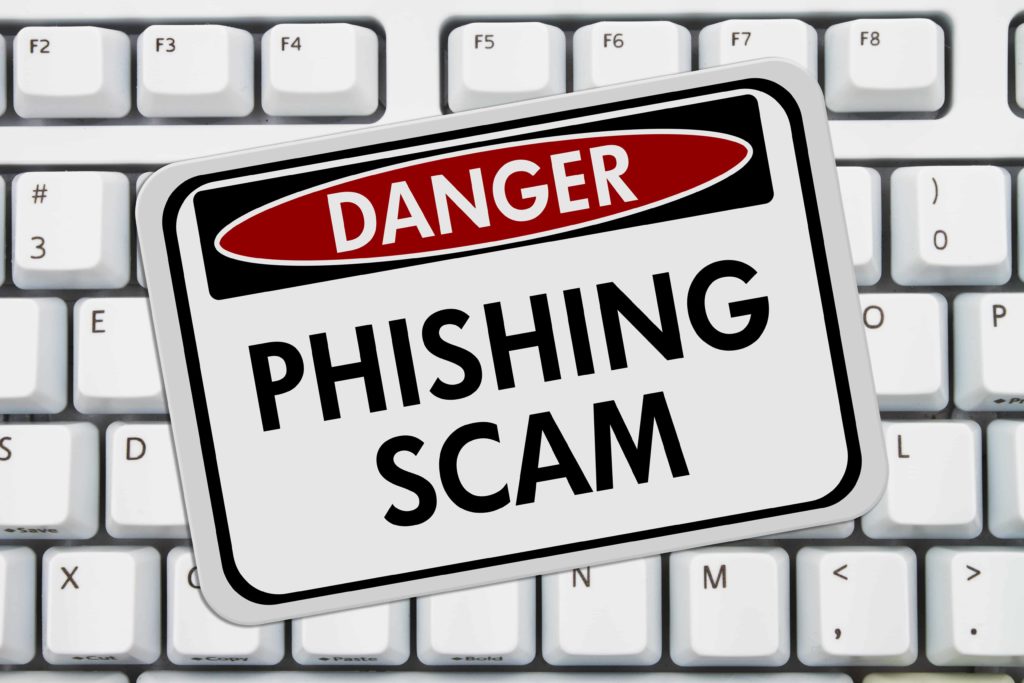Phishing Scams: how to protect your website from online threats
Phishing scams are dangerous, and nobody wants to fall prey to them.
Even though many laws around the world make it a cybercrime, such crimes will continue because it is successful enough for cybercriminals to make huge profits from them.
Ever since the inception of the internet, phishing scams have been around, and they will be there for more years to come. Fortunately for you, now there are many different ways to protect yourself from such an attack.
Here are some basic tips that will help you keep safe from such attacks.
Keep yourself informed about the different Phishing Techniques
Cybercriminals develop new methods for phishing all the time, if you are not updating yourself about the new phishing scams, you could accidentally fall prey to such a scam. Some might even say, keep your eyes peeled about new phishing scams.
If you find about the scams early on, there is a lower risk of you getting attacked by one. Simulated phishing for all users and ongoing security awareness training is very much recommended for keeping top-notch security in the organization.
Always think before you click
It’s okay to click on links that are from verified and trusted sites. However, clicking on links that randomly appear in instant messages and emails isn’t a smart move at all. Just hover over the links that you are not sure about before clicking on them.
Just see if they’ll take you where it is supposed to take you. Sometimes a phishing mail may claim that it is from a verified and legitimate site and when you click the link it may take you to the site that looks legitimate and real.
The phishing email will ask you to complete the information and may not contain your name. “Dear Customer”, is the most common way a phishing mail will start, so check for this when you see a dangerous email. Go directly to the source when in doubt and don’t click on the link that could be potentially dangerous.
Installing an Anti-Phishing Toolbar
Almost all the modern browsers can be customized with an anti-phishing toolbar, with such toolbars, you can quickly run checks on the different sites that you may visit and then compare those sites with a list of phishing sites.
If you come across a dubious site, then you will be alerted by the toolbar about it, this will add an extra layer of security for you, and most of these anti-phishing toolbars are completely free to use.
Verifying the security of a site
It’s okay to be a little skeptical about giving sensitive financial information online, as long as you are present on a verified and secure website, you will not run into any problems. Before you submit any information, just make sure that the URL of the site begins with “HTTPS” and check for a closed icon that is present near the address bar.
Also, you could check the security certificate of the site as well. Do not open the website if you get a message stating that it may contain any malicious files. Also, if you come across a suspicious email or website, never download anything from them.
Sometimes, even search engines will lead users to a phishing website which may offer to giver products that have a lower cost. If purchases are made by the user at such a website, then the credit card information and details can be availed by those cybercriminals.
Regularly Check your Online Accounts
If you are not regularly visiting your online account, someone could access it and have a field day with it. Even if you technically dont have to check in regularly with your online accounts, you should check them on regular basis, also cultivate the habit of regularly changing your passwords.
Regularly checking your account statement will also help you to avoid any bank phishing and credit card phishing scams. Always get the monthly statement for your financial accounts and go through each entry regularly to be sure that no fraudulent transaction has happened without your approval or knowledge.
Keeping your browser up to date
Popular browsers release security patches regularly and are released in response to loopholes in security that are found and exploited by hackers. If you usually refuse to upgrade your browser, make it a habit to update, then minute a new update is available.
Using firewalls
Using a very high-quality firewall will act as a protective wall bet outside intruders and your computer. There are two kinds of firewalls that you should use, one for your network and the other for your computer. The first is a software option, while the other is a hardware option.
When you simultaneously use them, they will drastically reduce the chances of phishers and hackers accessing your network or your computer.
Be careful about the pop-ups
Pop-ups usually mask genuine components of a website. But most of the time, they are attempts for phishing. Almost all of the modern browsers have the option to block the pop-ups and you can also block them on a case-by-case basis. Don’t click on the cancel option, if one such phishing attempts manage to get through, instead just click on the small “x” that will be present in the upper corner.
Never give out personal information
Never share information that is personal on the internet, if you are doubtful about the site, go to their webpage, give them a call and verify whether they are true or not. Always cultivate the habit of checking the address before giving out very sensitive information.
A secure website will always start with the words “HTTPS”
Using an Antivirus Software
There are several reasons to install antivirus software. The special signatures present in this software can help you protect against loopholes and technology workarounds. Always make sure that your software is up to date because these phishing scams are finding new ways every day.
Firewall settings and Anti-spyware should be used to prevent these phishing attacks and you should also regularly update the software regularly. This software will scan all the field that comes through the internet to your computer, and it also prevents the impact of the damage to your system.
You can use a combination of all these techniques if you want to protect yourself from such attacks and there is no single fool-proof way of preventing phishing attacks.
Contact Us To Get FREE Website & Digital Marketing Consultation Today!







